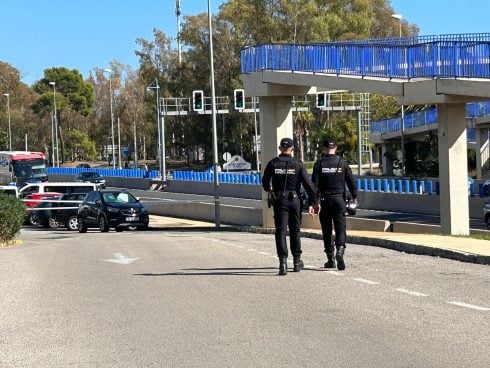DRUG trafficking gangs are increasingly moving their operations to Marbella because of a continued police crackdown further down the coast, an expert has warned.
Ana Isabel Cerezo, a director at the Andalucian Institute of Criminology, gave a talk on the scourge of so-called narcos at the University of Malaga last week, alongside other experts.
She told attendees how an ‘intensive and exhaustive’ ramping up of surveillance in and around Algeciras is pushing mafia activity towards the Costa del Sol.
The port of Algeciras is one of the most important entry points for drugs in Europe due to its strategic location.
It sits just across the Gibraltar Strait from Morocco, the biggest hashing exporting country in the world, and is one of the first ports of call – alongside Galicia in the north – for cocaine and other drugs being shipped from South America.
But a police crackdown over the past year has, according to Cerezo, made Marbella a ‘very attractive’ option for drug traffickers looking for alternative delivery routes.
It comes after police in Cadiz demanded more resources in February when a narco boat rammed against a Guardia Civil vessel and killed two officers.


This sparked a fierce and continued police response along the Costa de la Luz, with officers vowing to make life difficult for drug gangs.
According to Cerezo, the drug trafficking ‘phenomenon’ in Andalucia is caused by a perfect storm of geographical location and poverty.
There are a number of very poor communities, such as the Campo de Gibraltar, where jobs are scarce and people more easily persuaded to make a quick buck as part of a narco gang.
Additionally, Cerezo said traffickers are attracted to Gibraltar because it is a ‘tax haven’ – a term the British colony has long rejected.
For these reasons, the expert said the scourge of drug crime continues unabated, despite a series of crackdowns and reinforcements by the authorities since 2018.
In her opinion, the only way to beat the gangs is to tackle poverty at its root and come up with a ‘coordinated and global’ plan.
“It is of no use to us to take initiatives that are not homogenised with the rest of the autonomous communities or even countries, because this is a global problem,” she stressed.

She pointed out that in some places measures to legalise soft drugs have been implemented as first steps to address the issue.
“Until now, at the international level, all the measures that have been adopted have been prohibitionist, and it is being shown that they are not of much use,” she said, suggesting that legalising or decriminalising some drugs may help weaken mafias.








